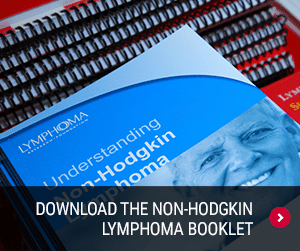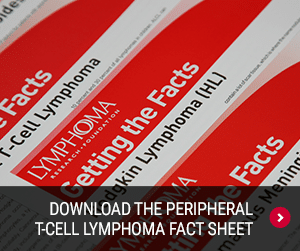
What is Lymphoma?
Peripheral T-Cell Lymphoma: Treatment Options
For most subtypes of peripheral T-cell lymphoma (PTCL), the initial treatment is typically a combination chemotherapy regimen, such as CHOP (cyclophosphamide, doxorubicin, vincristine, and prednisone), CHOEP (etoposide, vincristine, doxorubicin, cyclophosphamide, and prednisone), or other multidrug regimens. Because most patients with PTCL will relapse, some physicians recommend high- dose chemotherapy followed by an autologous stem cell transplant (a type of stem cell transplant in which the patient receives his or her own stem cells, collected several weeks before the transplant).
For CD30-expressing PTCLs, brentuximab vedotin (Adcetris) is now approved for use in combination with cyclophosphamide, doxorubicin, and prednisone as initial treatment.
Many new drugs are being studied in clinical trials for the treatment of PTCL, including:
- Alisertib
- Bendamustine (Treanda)
- Bortezomib (Velcade)
- GDP (gemcitabine, dexamethasone, and cisplatin)
- Lenalidomide (Revlimid)
- Nivolumab (Opdivo)
- Panobinostat (Farydak)
- Pembrolizumab (Keytruda)
- PI3K inhibitors
To learn about treatments under investigation for PTCL, download the Peripheral T-Cell Lymphoma Fact Sheet.


